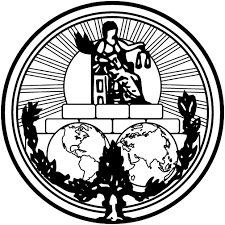 Remember that first-conference feeling? The daunting task of grappling with the different terminology while debating niche issues from the perspective of a country you might not have even heard of before? This type of insecurity usually only lasts for one – the first – conference. Yet even the most experienced and veteran MUN participants relive such insecurity when they act as judges in the ICJ for the first time. To help counter the insecurity, this article looks at what to expect of the ICJ, how to prepare for debates on international law, tips on becoming a better judge to win awards grow as a MUN participant, and the importance of structuring an argument.
Remember that first-conference feeling? The daunting task of grappling with the different terminology while debating niche issues from the perspective of a country you might not have even heard of before? This type of insecurity usually only lasts for one – the first – conference. Yet even the most experienced and veteran MUN participants relive such insecurity when they act as judges in the ICJ for the first time. To help counter the insecurity, this article looks at what to expect of the ICJ, how to prepare for debates on international law, tips on becoming a better judge to win awards grow as a MUN participant, and the importance of structuring an argument.
What to Expect
Take everything you know about MUN and throw it out the window. Forget memorizing your country’s foreign policy, digging up dirt on other country’s foreign policies, and rephrasing previously introduced resolutions. Instead, expect an experience that brings together the quick thinking-on-your-feet skills fostered by your previous MUN experience and the substance grounded in law. Expect passionate, personal views and interpreting international treaties to those personal views. Expect random precedent from the travaux preparatoires of creating a treaty or deciding a case. Most of all, expect to be called out on every piece of information you assert. All of this sounds terrifying, but it really is manageable with a few simple steps: proper preparation, actually looking through position papers, and creating a solid argument.
Preparation is, Indeed, Everything
Unlike the GAs or Councils, the ICJ requires precedence for everything as judges argue points of law – not fact. The fact that the DR Congo attacked its neighboring country does not mean anything unless you’re able to show that this attack violates Article 2(4) of the UN Charter, or some other provision. This is why preparation is of the utmost importance when you’re acting as a judge in the ICJ.
Law generally has two types of precedent: binding and persuasive. Binding precedent is the area of law that is binding in itself. In international law, this covers international treaties, customary international law (which includes General Assembly resolutions), some judgments from international courts and tribunals, and previous advisory opinions. Persuasive precedent, on the other hand, is not binding and does not constitute a strict “rule”. However, as the name suggests, persuasive sources can be persuasive in argument. This means that it is a secondary source that alone cannot create a point, but, with other sources, can help substantiate a point. Persuasive precedent includes the travaux preparatoires (paper trail) of international treaties/cases/opinions, common state practice, and domestic law. To adequately prepare for the ICJ, you should have a good understanding of the relevant binding and persuasive precedence to the issue. To take it a step further, good judges how these sources can be brought together, how they support or contradict each other, and how they are generally interpreted.
Most ICJ questions are on underdeveloped areas of international law. Therefore, it is unlikely that there would be a previous situation that is exactly like the current problem. The key is to finding sources that you are able to apply to this situation. Half of law is taking two different situations and showing how they are the same, and vice versa. This is why intensive preparation and a full understanding of all the surrounding law are vital to doing well in committee.

Why Judging Other People Is Hard
Everyone knows that MUN is just as much about the people as it is the issues. Diplomacy goes beyond just having the correct view – diplomacy is convincing others that your view is correct. Therefore, preparation alone does not an award make. The ICJ is a particularly difficult committee in this regard because you do not know what other peoples’ views are until the conference.
In other committees, delegates are able to look into where other countries’ foreign policy plays with their own to form a strong bloc. When doing so, delegates can check to see which countries are allies, which share a similar vision in a particular area, and which will oppose your solutions to find counter-points. Presumptuously forming a bloc or creating counter-points is difficult to do in the ICJ because usually judges are representing their own legal opinions. Judges are not be able to research a structured policy on other perspectives, because there aren’t any way to know what another judge’s personal view on the legality of annexation is unless you’ve spoken to them. Judges will also not be able to see how other judges have reacted to similar situations before. Because of these difficulties, position papers (‘preliminary opinions’) are of the utmost importance for judges in the ICJ to understand what kind of views and perspectives they will be working with.
Presumably, all judges have done the an adequate amount of research and, after looking through position papers, have some sort of idea whose perspectives coincide with their own. The first step – making sense of the view you believe to be correct– has been achieved. The next step, then, is figuring out how to convince others that your view is correct. This is done through the structure of your argument. Not only does this help a judge convince the court to follow his/her perspective, but also helps a judge stand out and win an award. This is done through the structure of your argument.
How to Win Arguments
Since all ICJ discussion is based on international law, each judge’s perspective will have some sort of basis in law. To counter an argument that may be equally grounded in law, a judge must present a better-structured argument. The usual rules of validity and soundness apply – the conclusion must logically follow from the premises, and the premises must be true.
Legal arguments are different from political arguments because instead of trying to convince others that your perspective is the best solution, judges must show that their point is the most consistent with international law – and convince others of this. Therefore, arguing in the ICJ is all about interpreting and molding the current law to support a particular perspective. Doing this requires a lot of preparation to understand the law as it stands, taking into account the different ways the same law can be interpreted by other perspectives, and laying out a solid argument that leaves no room for misapplication. Judges who successfully manage all three facets will be able to continue to #doMUNate in the ICJ.


